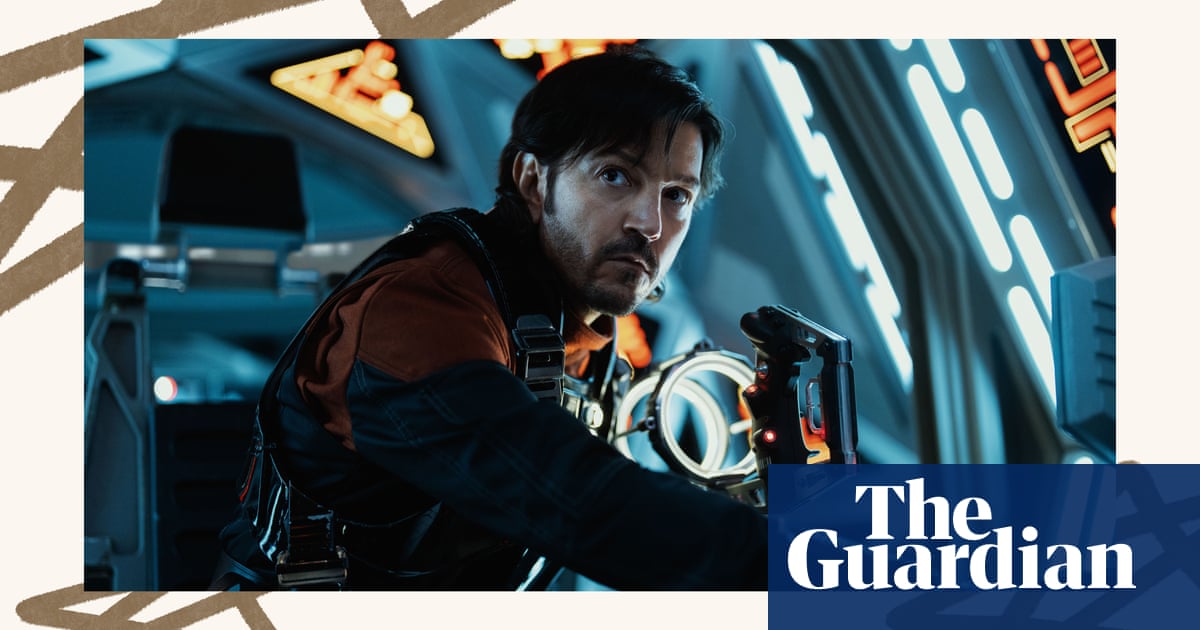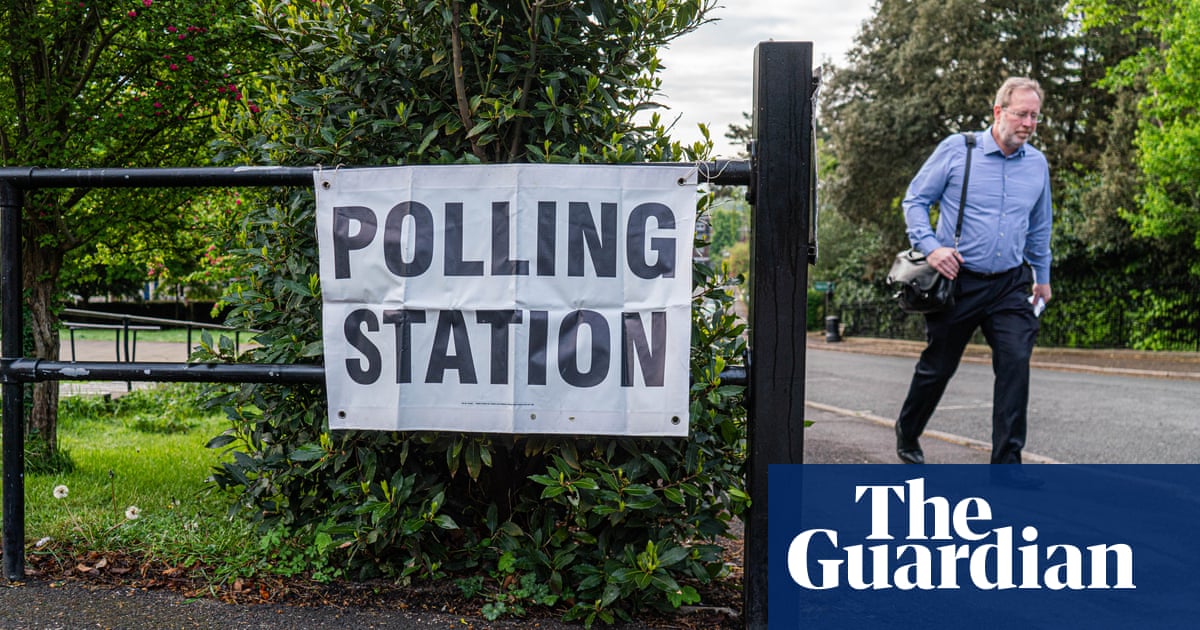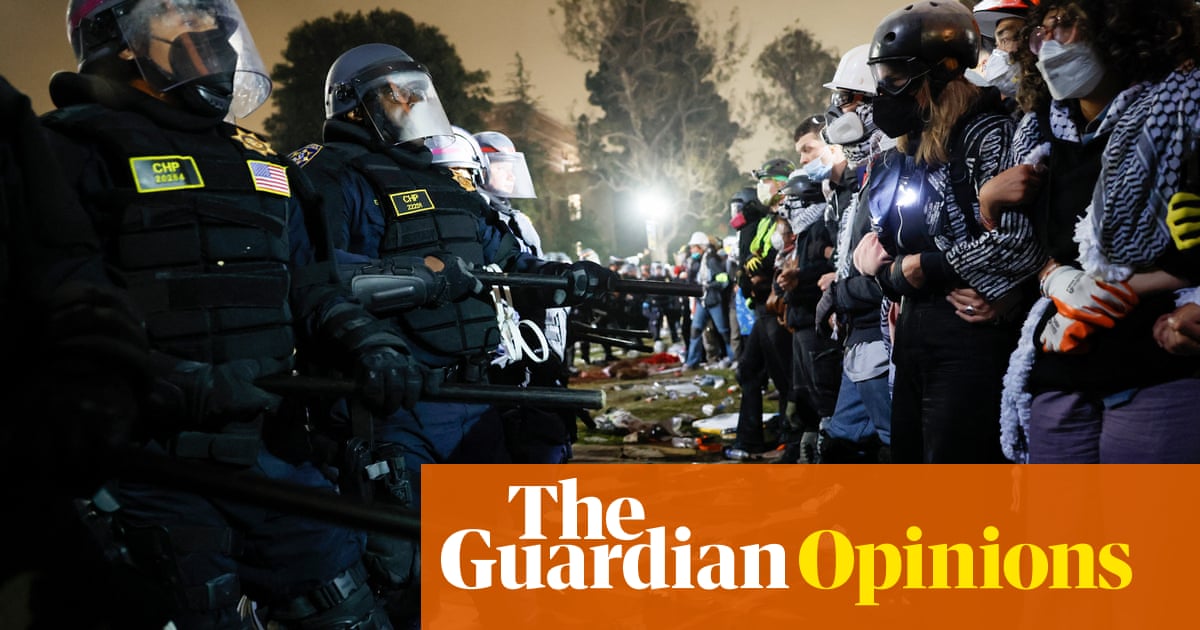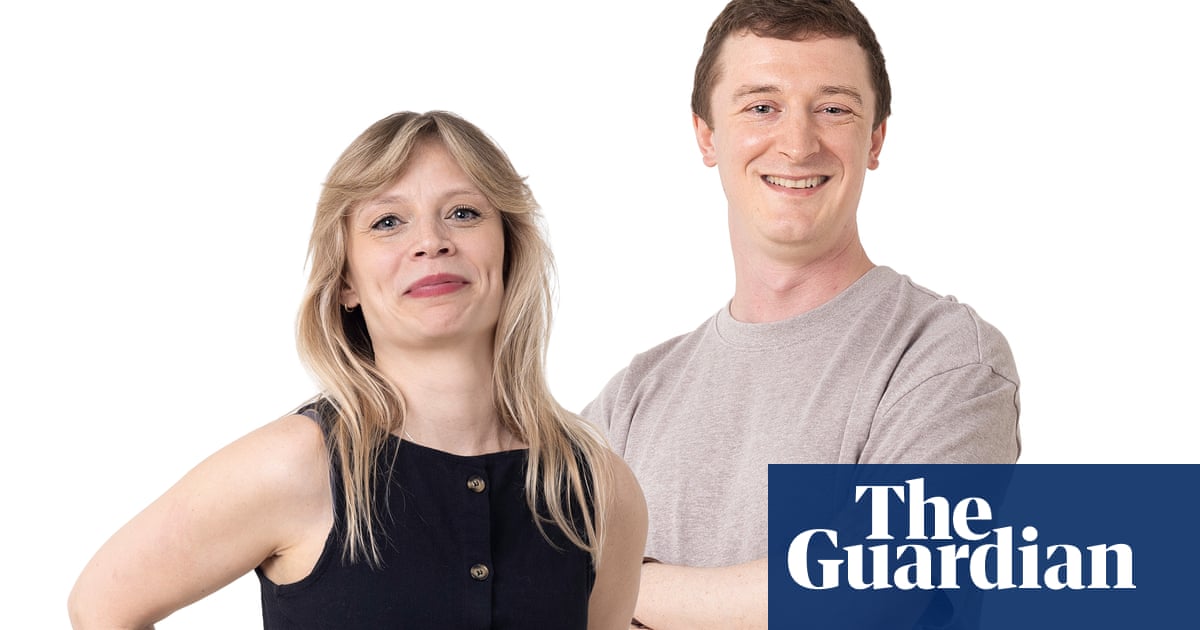When he learned that series two of Utopia would be airing in July of 2014, Dennis Kelly knew the end was nigh. “I remember us going ‘summer’s terrible isn’t it?’”, the writer says. “And they were going: ‘No! Summer’s the new winter!’ … Never believe anyone when they say this shit to you.” By October, the cult Channel 4 thriller had been axed. For Kelly, who had a third series mapped out, it was “heartbreaking” to bid farewell before he had planned to. “But I’m quite stoic. I learned a long time ago not to take things personally.”
Today, TV cancellations seem to be a weekly occurrence and this year alone has seen the likes of Kaos, Constellation, The Acolyte, My Lady Jane and Dead Boy Detectives bow out after just one season. But shows being cut off mid-sentence is nothing new. What made Utopia brilliant – its full throttle conspiracy paranoia, highly stylised aesthetic, dark comedy and graphic violence – also made it a challenging sell. But Kelly says that Channel 4 were all in … until they weren’t: “I never want to beat up Channel 4, not because I feel loyalty to them because I don’t, but I feel like they really gave it a go and they never pushed back on anything … If I were to criticise them, I’d say you should be able to see through how many people are watching something now to its value beyond that.”
From what Kelly remembers, Utopia’s first series debuted to about 1.5 million viewers, dipping to 300,000 or 400,000 in the second. “They didn’t exactly say [it was the numbers] but I can’t think it’s anything else,” he says. “I kind of wish they had said that actually! It’s odd to me that people would say ‘we’re really proud of it but we think it’s done its thing’ when clearly it hasn’t finished. Because I get it, I’m a grownup. I don’t take offence … I don’t have a right to make my series: if people aren’t watching, [they] aren’t watching.”
Kelly had been through a previous cancellation with Pulling, the BBC sitcom he co-wrote with Sharon Horgan, although that show was afforded an hour-long special to conclude. Utopia’s end was “bruising in a different way,” Kelly says. “Immediately you do go into a bit of a slump … Then you get to a point where you can move on. I don’t know if I’ve totally moved on, though … This is like a therapy session!” When he sensed the writing was on the wall, Kelly wasn’t tempted to wrap things up neatly. “Maybe it’s my stupid optimism,” he says. “But I felt like I couldn’t write a series thinking we weren’t going to get another.”

For Victor Fresco, leaving his series Santa Clarita Diet on a cliffhanger was a calculated move. “We had an inkling it might not come into a fourth year,” he says of the Netflix “zomcom” that starred Drew Barrymore as a real estate agent who turns into a zombie, and Timothy Olyphant as her husband, attempting to conceal her appetite for human flesh. “We didn’t want to make it easier for them to cancel us,” says Fresco. “We thought ‘Why are we doing their work for them?’”
Airing from 2017 to 2019, Santa Clarita Diet was a wacky, gory, high camp affair with a dedicated following. Despite Fresco’s inkling, it still “blindsided” him when, while in the edit suite for season three, his assistant producer walked in to tell him the show’s sets were being dismantled: “That’s how I heard it was definitively not coming back.’”
Like Kelly, Fresco had been through cancellations before, on his network shows Better Off Ted and Andy Richter Controls the Universe. But with Santa Clarita Diet being one of Netflix’s early original commissions, he was naive to the way the streaming model would pan out: “It was explained to us that you don’t have to be popular with everybody. This was one of the appeals: just find a niche audience.”
What he came to understand was that “you really have, at best, a three-year run” unless your show is a “monster hit” like Stranger Things. This is in part down to Netflix contracts including a series of inbuilt bonuses that increase annually: “If you look closely at your deal, you’ll see that there’s a huge disincentive for them to order seasons four and five because they’re really making a big payout then.”

But while streamers have garnered a reputation for swift cancellations, they have also offered an afterlife to shows like Tracey Wigfield’s sitcom Great News, which found an audience on Netflix after being cancelled by NBC in 2018 after two seasons. Following an ambitious young cable TV producer as she dealt with her overbearing mother landing an internship on her news programme, it was Wigfield’s first solo project after working on 30 Rock and The Mindy Project. The central mother-daughter relationship was based on Wigfield’s with her own mother Kathy, who, Wigfield jokes, took the cancellation harder than the cast and crew: “She took it as a personal affront that people didn’t like her!”
Wigfield herself kept perspective: “If you’ve been in the business a while, you get it … People write dozens of scripts that never get shot and then the ones that do get shot, most of them don’t ever get seen. It’s such a waste.”

While Great News didn’t get the numbers NBC wanted, Wigfield says there are “a million reasons why shows stay on the air or don’t”. Another project of hers – Peacock’s revival of Saved by the Bell, also cancelled after two seasons – likely suffered because ongoing shows don’t bring in enough new streaming subscribers. In that sense, Wigfield says she can only do so much. “I’m not just writing things because I’m an artiste,” she says. “I want to make a hit! But I can only make things I think are interesting and funny and I will succeed and fail at that from project to project. The actual getting it to be Squid Game? Some of that is just out of my control. Or at least I tell myself that to not drive myself crazy.” Nonetheless, she concedes: “It’s a bummer, and I think it’s a bummer every time … But it’s also like, I’ve created this and I can create something else.”
That’s what Abi Morgan told herself when she discovered that The Hour, her acclaimed drama about a 1950s BBC current affairs show, would not be renewed. “It was such a visceral, physical, emotional relationship I had with that show that I acted quite tough in the beginning,” says Morgan, who vividly remembers receiving the bad news in 2013 on speakerphone in her car from her longtime producer Jane Featherstone. “I was sort of ‘OK, never mind. I’ll move on to something else’’. As a writer I always run away to another project anyway.”

But with an “incredible constellation of talent”, led by Ben Whishaw, Romola Garai and Dominic West, the show was a global hit, so its cancellation came as a shock. “There was a split within the BBC,” says Morgan. “I know Ben Stephenson [the BBC’s then head of drama] was really upset and wanted it to go forward but the commissioner at the time [Janice Hadlow] had culled a whole load of shows of which mine was one.” Having left audiences dangling – wondering if Whishaw’s dogged journalist Freddie had survived a vicious beating – Morgan had already plotted a third series moving into the 1960s: “You were going to discover that actually Freddie was a spy, that Freddie was the one who betrayed his country.” Instead, she was left in the “very weird” position of winning an Emmy seven months after the show had been cancelled: “I lost my palette. I was like ‘is this a successful show or is it not?’”
Today she has mixed feelings. “There’s a whole load of work I wouldn’t have done if I had stayed on,” she says. “And it probably made room and budget for someone else’s show and that’s a good thing.” But there is still frustration: “It does take a lot of energy to build a show like that and when you’ve got the engine in place, I think that’s when you really want to let it run a bit. Because you just don’t know the way it’s gonna grow. And for us, there was that feeling that it would grow.” People talking to her about The Hour now, as they often do, is “slightly uncomfortable”. “It’s like someone talking about your ex who dumped you,” she says. “And I still love him but it’s OK, he’s gone on and had a nice life and I’ve had to move forward.”
Of course, the question the creators of cancelled shows always face is whether or not they would resurrect their darlings should the opportunity arise. Wigfield is game for Great News – “Oh my god, yes! … I love money and television shows: I will take it!” – and Fresco thinks a short run of episodes or even a movie to tie up Santa Clarita Diet would be “really satisfying”. Meanwhile, Kelly has, for 10 years, refused to tell anyone how Utopia would end because “you never know”. Morgan sits somewhere in the middle on The Hour. “I’ve always said I’d love to come back,” she says. “But in some ways I guess I’ve moved on and it would be quite peculiar going back to that world. Maybe it would be a little bit like Miss Havisham, dragging everyone back to the past.”

.png) 3 months ago
56
3 months ago
56













































